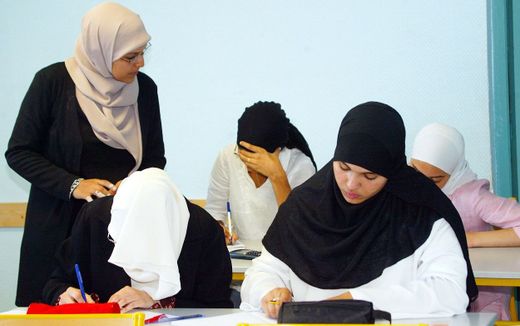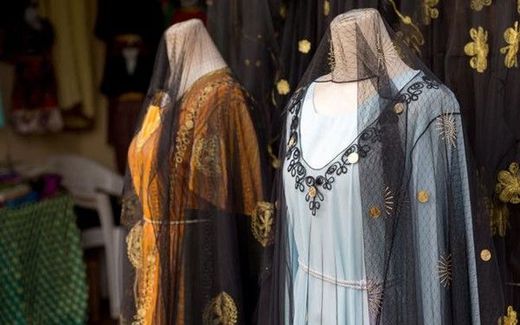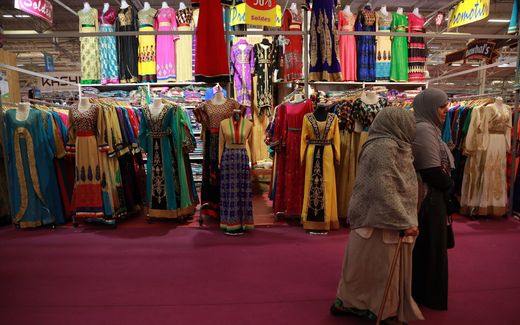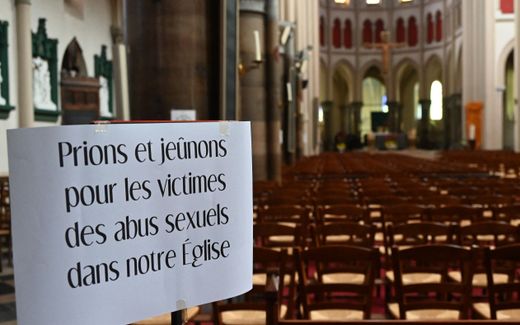Column from France: Of course, the abaya is a challenge to secularism
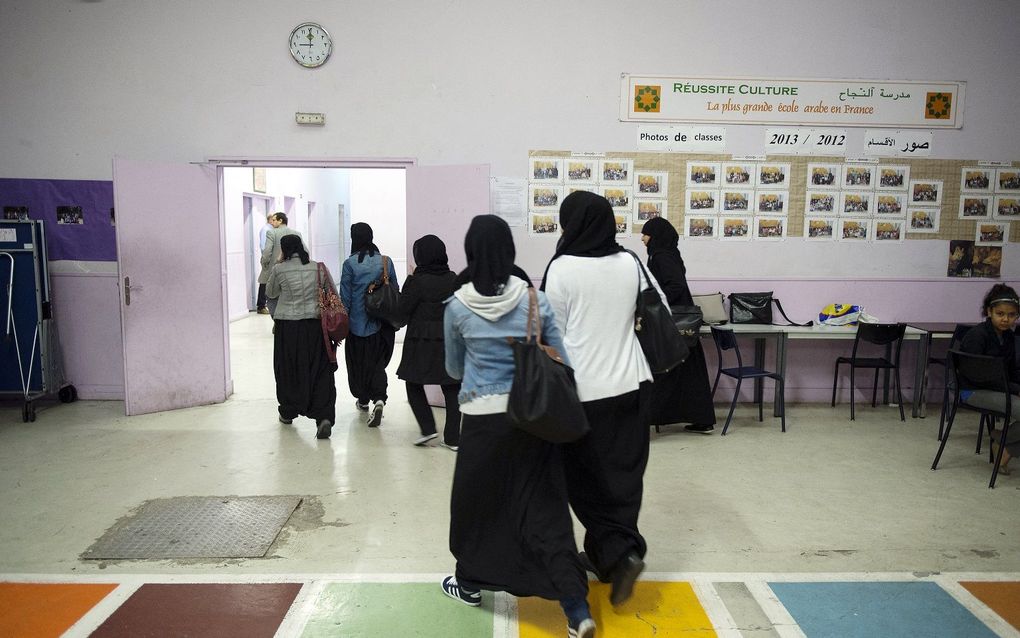
Muslim faithful students leave their classrom at the La Reussite muslim schoo in Aubervilliers, outside Paris. Photo AFP, Lionel Bonaventure
Christian Life
The start of the new school year in France was marked by a public debate about the so-called abaya. Gabriel Attal, the recent young Minister for Education, has made the garment a national cause in defence of French secularism. But by doing that, he caused a debate in our own family as well.
Politicians of all stripes have seized upon this burning issue. Some advocate strict compliance with the 1905 law on the separation of Church and State, by banning the wearing of this dress in schools. Others denounce a “witch hunt” on Muslims.
In fact, the issue at stake is nothing less than the understanding of religious freedom in the public arena, in this case the school, the supreme place of secularism in France.
A useful debate?
This debate has recently come to the fore, in a lively way, within our own family. The other evening, the question came up to our children. Two of them are pastors and the other is in charge of culture in our town's media libraries. My wife is a primary school teacher herself. Should the wearing of the abaya be considered a conspicuous religious symbol? How should the 1905 law guaranteeing secularism be interpreted and applied?
Suspected of trying to play down more important issues at a time when 12 million pupils were starting the new school year at the beginning of September, the French Education Minister has made the abaya a subject that everyone is talking about, sometimes without really knowing what it's all about.
As a result, the very serious Conseil d'État (the French State Council) had to look into the matter and rule on the ban on this garment before the start of the new school year. In a circular dated 31 August last year, the Minister for Education and Youth stated that wearing the abaya in state schools constituted a conspicuous manifestation of religious affiliation prohibited by the Education Code of 2004. An association then asked the interim relief judge of the Conseil d'État to suspend the circular as a matter of urgency.
Civilisations
What exactly is at issue here? The first thing to remember is that the abaya is a traditional garment for women, consisting of a long, loose, covering dress. It is worn mainly in Arab countries, notably Saudi Arabia, the Persian Gulf countries and the Maghreb. This women's garment covers the entire body except for the face and hands. According to some historians, the abaya dates back to the ancient civilisations of Mesopotamia around 4,000 years ago.
But is it a religious symbol? For the French Ministry of Education, the memo on the abaya, issued on 31 August, is simply a reminder of the 2004 law. This law prohibits conspicuous religious symbols in schools, such as the Islamic veil, the yarmulke or crosses that are clearly disproportionate. So, there is nothing new here, just the application of an existing text, the Education Minister argues. In the letter sent to parents to explain the content and approach, the Ministry points out that the circular is simply a response to a request for clarification from school heads in the face of the spectacular rise of the abaya.
According to the monthly barometer compiled by the French Ministry of Education, this garment is being used as a Muslim community marker in schools. In particular, the barometer points to an explosion in attacks on secularism in 2022 in connection with the abaya. In its defence, the French Ministry of Education cites the ban on permanent bandanas in lieu of headscarves, a decision endorsed by the Conseil d'État in the past.
Dead-end debate
While this debate is of concern to all religious denominations, there has been little reaction from them until now. The “Conseil français du culte musulman” (CFCM), feeling particularly targeted, reaffirmed that the abaya "is not" a Muslim religious symbol. The other faiths, Catholics and Protestants, are simply calling for moderation, although they are concerned about the excesses that such a decision could also cause.
While for many Protestant observers, the ban on the abaya, used as a religious flag-bearer, seems justified, it also raises concerns because it touches on freedom, in this case freedom of dress. The abaya remains a geographical and cultural marker. Wearing it can be seen as a way of challenging and testing the limits of French secularism. So, the debate is far from over!

Marc Derœux (1965) is a French pastor, connected to the Baptist Federation (FEEBF).
At the moment, he serves as the director of the language school Center des Cèdres in Massy (near Paris).
Before, he served as a minister in Lille, Lyon and Valence. He is involved in the National Council of Evangelicals in France (CNEF).
Derœux is married to the schoolteacher Catherine, with whom he has three children.
Related Articles



